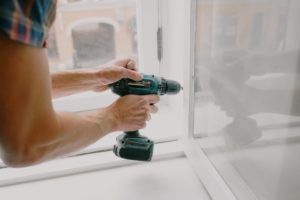Sleep expert, professional interior and luxury bedding designer Jennifer Adams is back to answer your questions and provide some helpful advice! Today we consider the strategic topic of how to stage your home for selling, and whether this is something you can do on your own:
What Is Staging?
Perhaps we should start with a more basic question – what does it mean to “stage” a house, anyway? Staging is simply the process of getting your home as sale-ready as possible. It’s about highlighting your home’s strengths, downplaying its weaknesses, and increasing its marketability.
Why Staging Matters
Consider this. You wouldn’t try to sell a car without washing it first, would you? And you certainly wouldn’t go to a job interview without showering, grooming, making yourself smell nice, and putting on appropriate clothes in the hopes of trying to make a good first impression. Think of home staging the same way. It just makes sense to help your home put its best foot forward if you want to improve its chances of selling for all it’s worth. And, according to the Real Estate Staging Association, homes that are staged before going on the market sell 86% faster!
Should I Worry About Staging a Fixer-Upper?
There is nothing wrong with just pricing a fixer-upper accordingly, especially if you need to sell it quickly. But the best way to get top dollar is to solve enough problems upfront, such that a potential buyer can actually visualize the possibility of moving in as-is. It’s OK to leave a few minor decorating projects for the buyer to do on their own, such as installing a new kitchen backsplash or changing cabinet hardware to suit their personal tastes.
How Much Do I Need to Invest in Staging?
Unfortunately, there is no single answer to this question. A lot of it really depends upon the current condition of the home you’re wanting you to sell, and what you’re really hoping to get out of it. Professional staging could be as extensive as replacing all the furniture, repainting, and even doing some minor renovations like installing new countertops or refacing the cabinets. On the other hand, if you’ve kept your home well-maintained all that may be required for staging is to give your house a thorough decluttering and top-to-bottom cleaning.
The Key to Effective Staging
The key is seeing your house through a potential buyer’s eyes. When you’ve lived in a place for a while, you get used to minor problems that might be a turn-off to would-be buyers. Dirty windows, broken switches, stained carpet, mildew in the bathrooms, and lots of weeds in the yard are all issues that are fairly easy to address. Taking care of little things like this will make a world of difference in how a potential buyer sees and thinks about your house.
You Really Can Do It Yourself
There are professional staging groups and consultants out there but using a professional to stage your home can get expensive. A lot of the typical issues that need addressing for proper staging are things you can probably do yourself. Putting on a fresh coat of interior paint is one of the best investments you can make – it really does help to freshen up the look of your home. Make sure to choose neutral paint colors that can match a wide range of furnishing and decorating tastes. It’s also a good idea to repair any windows, doorknobs, and hinges that need it. Unless you happen to be Chip and Joanna Gaines, it’s OK to leave major renovations to the buyer, as long as you give consideration to factoring these into your asking price.
Make a Good First Impression with Your Staging
Don’t underestimate the value of curb appeal – how does your house look from the road? What impression does it give when you first pull into the driveway? Make sure you give some attention to the front yard, the main entry, and the front porch (if you have one).
And by all means, make sure you take time to declutter before showing your house. Pack away any personal belongings that don’t absolutely have to be out in plain view. And before it’s all said and done, be sure to give your house a deep cleaning, inside and out. Can’t afford to replace all the furniture? You can still give the inside of your home a nice facelift by adding some decorative weighted blankets, throws, and bedding pillow accents.
Let Me Know How It Goes!
I hope these DIY staging tips are helpful! We’d love to hear how everything goes for you. Good luck with your listing!



